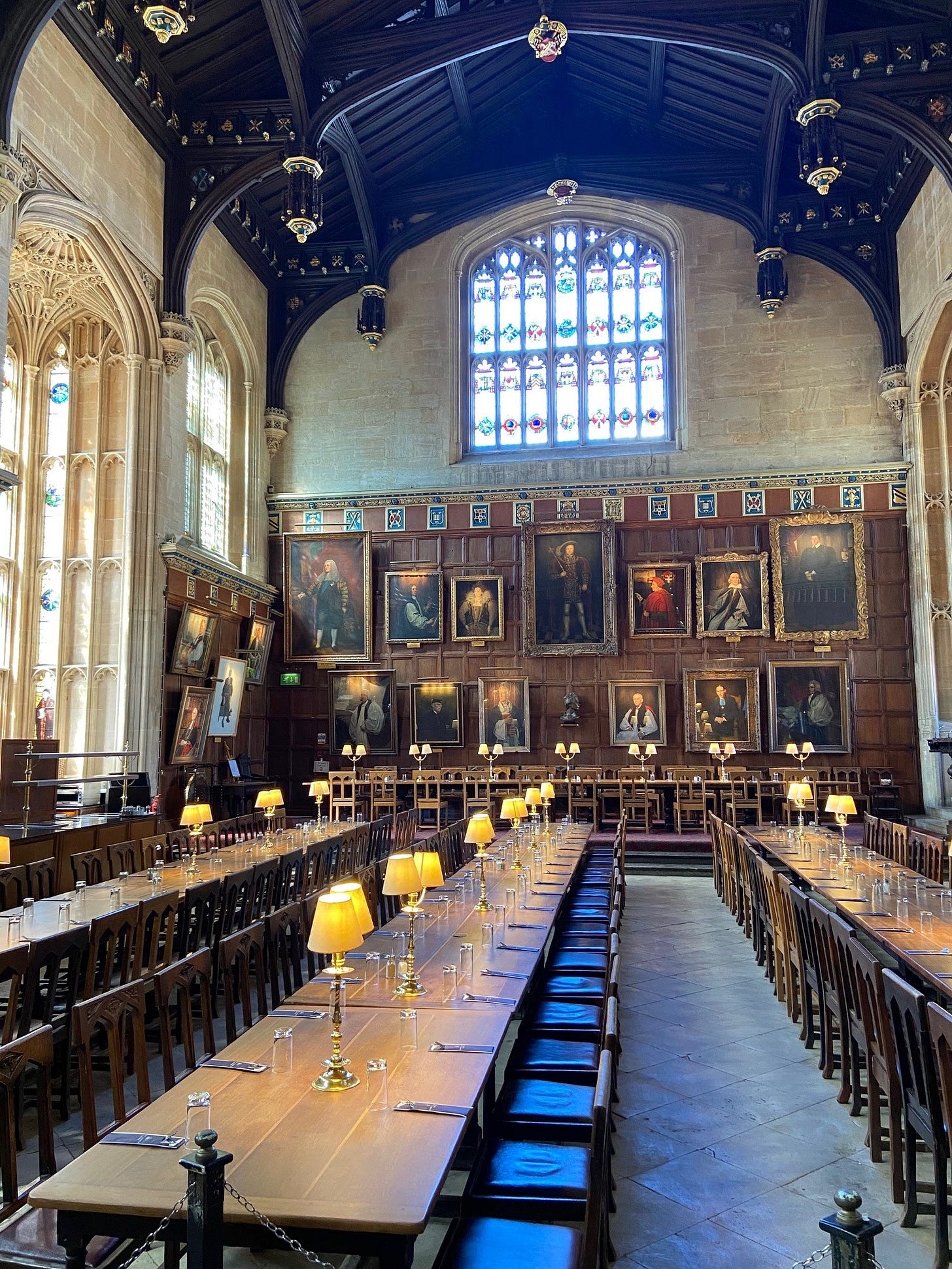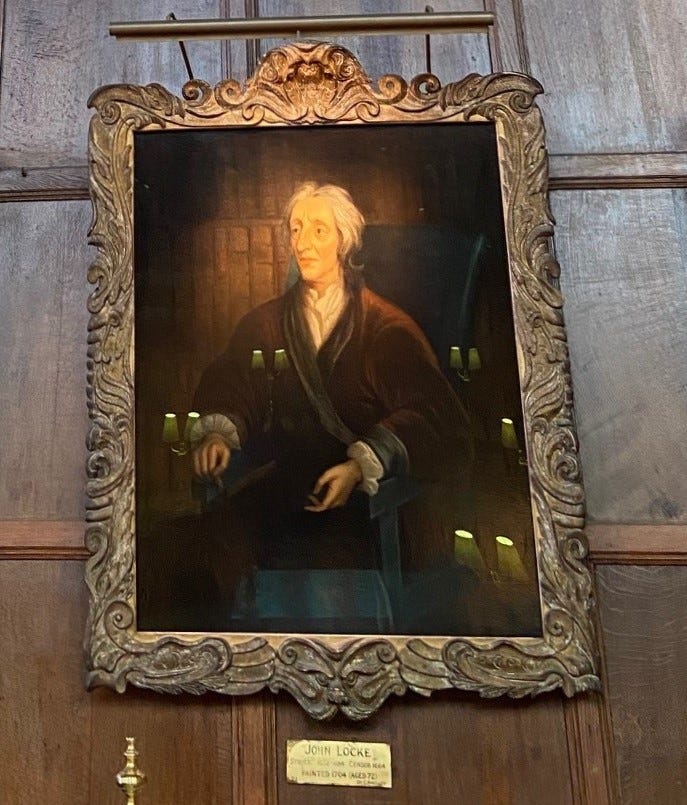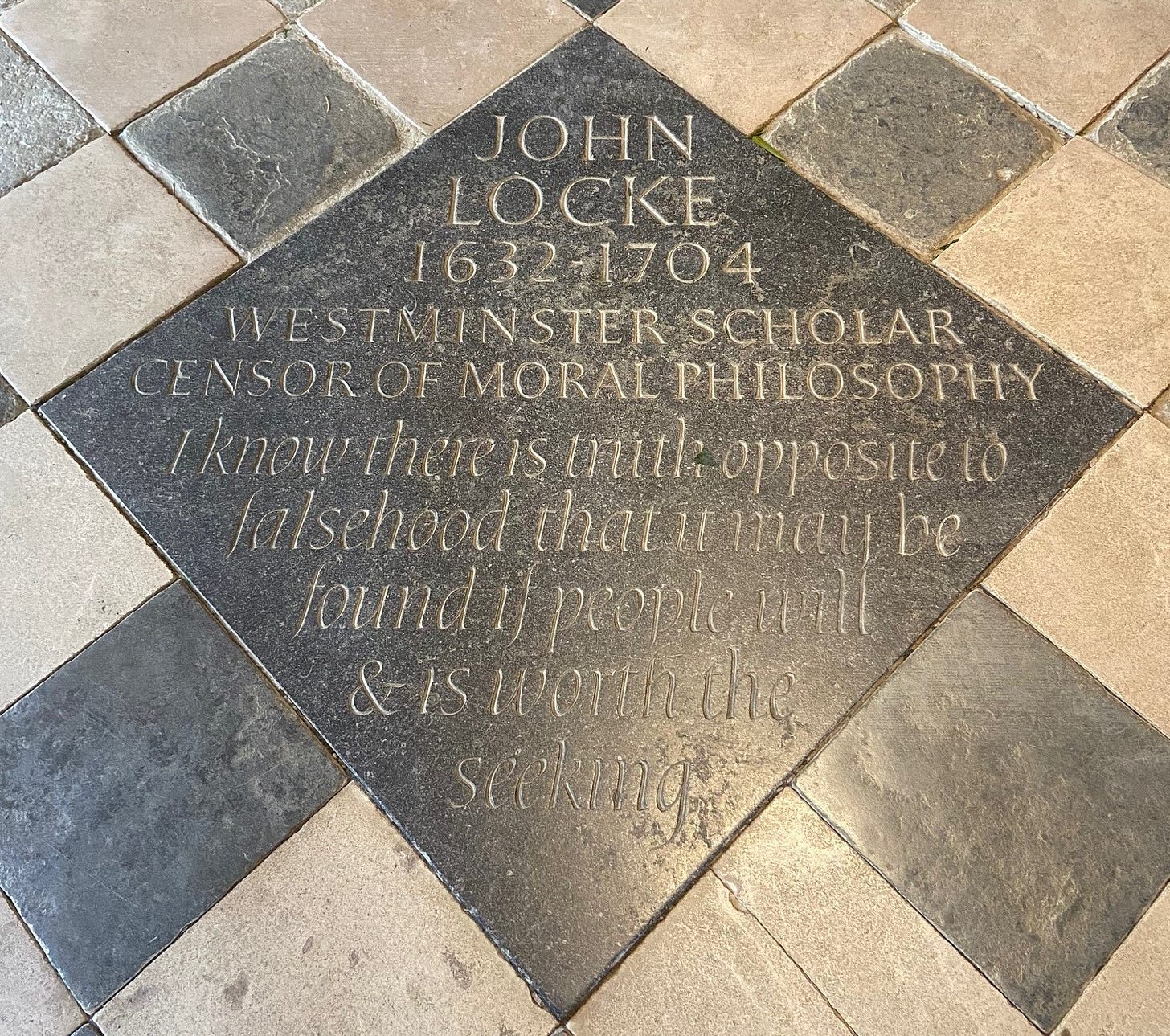John Locke's Legacy
His insights continue to shed their light and illuminate our discourse.
I recently returned from a trip to the United Kingdom, which included a day touring Oxford. The dining hall at Christ Church, Oxford’s largest college, is stunning, and not only because it inspired the Hogwarts dining hall scenes in the Harry Potter movies.
Among the portraits on the wall in here is one of John Locke, aged 72, painted in 1704 — the same year that he died. Locke entered Christ Church as a student in 1652 and became a Censor of Moral Philosophy there in 1663. As censor, he was responsible for discipline and academic progress in the college.
Locke is perhaps Christ Church’s most distinguished member and alumnus. The cathedral at the college commemorates him with a plaque-stone in the floor, with a quote taken from a letter to a friend in 1697: “I know there is truth opposite to falsehood that it may be found if people will & is worth the seeking.”
In a recent Wall Street Journal editorial, Barton Swain explains why Locke was so popular in Revolutionary America:
One [reason] is that he was Protestant. His religious views may have been heterodox in some respects, but he openly avowed his Protestant faith, and there is no reason to believe—as modern scholars, projecting their own areligious attitudes onto Locke, have often done—that those avowals were insincere. Revolutionary-era Americans would have associated Locke with the Glorious Revolution of 1688 and the ascendant Protestant king, William of Orange: The philosopher had been exiled by the quasi-Catholic monarch Charles II in 1683, and the preface of the “Two Treatises” claimed that the book vindicated William’s legitimacy. All this would have made Locke highly acceptable to the overwhelmingly Protestant reading audience of 18th-century America.
In my photo of Locke’s portrait above, you can see the reflections of the dining table lamps. It makes for a bad photo perhaps. But the symbolism is appropriate, for Locke’s insights—on human nature, political order, and faith—continue to shed their light and illuminate our discourse.
Source: Christ Church Cathedral Blog, “John Locke,” https://www.chch.ox.ac.uk/blog/john-locke.




